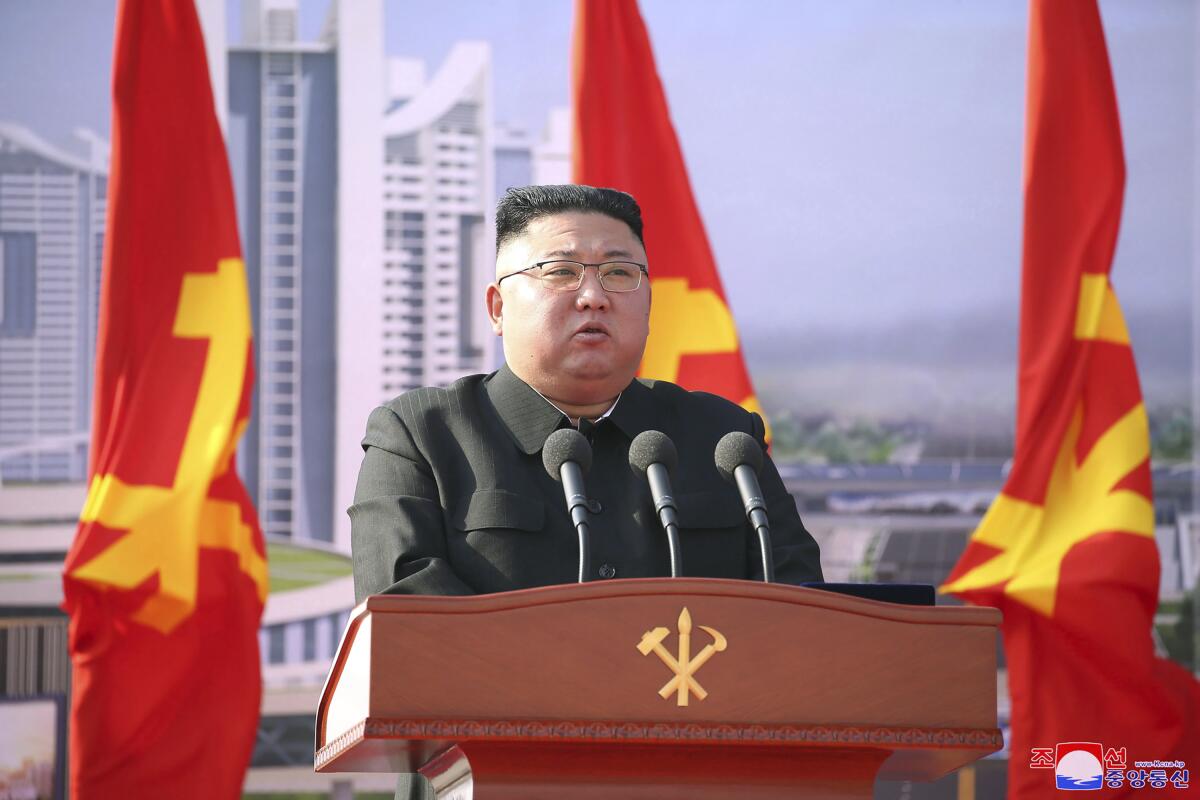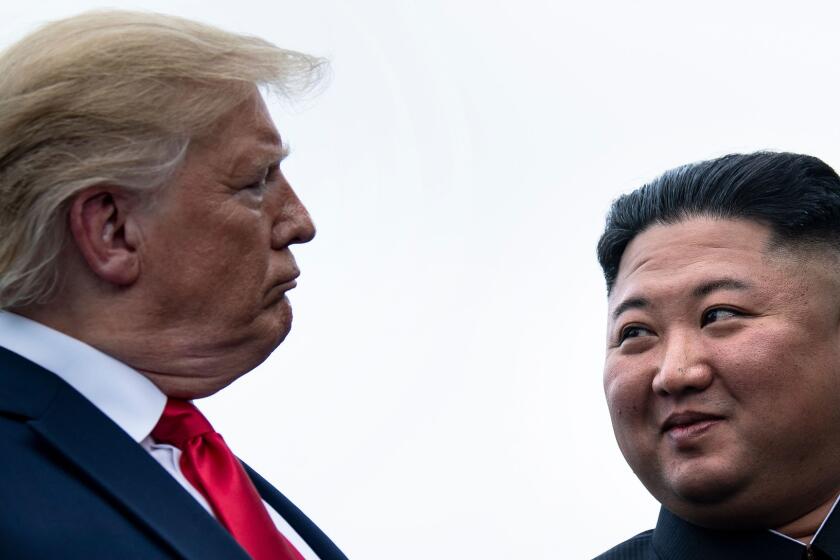North Korea conducted short-range missile test, White House says

WASHINGTON — North Korea fired short-range missiles this past weekend, just days after the sister of Kim Jong Un threatened the United States and South Korea for holding joint military exercises.
The missile tests were confirmed by two senior Biden administration officials who briefed reporters on condition of anonymity. They come as North Korea has ignored offers from the new administration to resume negotiations, and Secretary of State Antony Blinken last week pressed China to use its “tremendous influence” to convince North Korea to abandon its nuclear program.
The officials sought to downplay the significance of the missile tests, noting that they are not covered by United Nations Security Council resolutions meant to deter North Korea from pursuing a nuclear program.
Biden himself told reporters the missile tests were not a provocation. “There’s no new wrinkle in what they did,” he said.
South Korea’s military said in a statement Wednesday that it had detected two suspected cruise missile launches by North Korea on Sunday morning. It said the launches were made off North Korea’s west coast and said South Korea is analyzing them.
The statement said South Korea is closely monitoring North Korean missile activities in cooperation with the U.S. but noted that it doesn’t publicize all its information about North Korea.
President Trump charted a whipsaw course in relations with North Korea, going from alarming nuclear tests and brash threats to friendly summits with Kim Jong Un. President-elect Biden has not ruled out meeting with Kim but has signaled he’d revert to a more patient, measured approach.
South Korean lawmaker Ha Tae-keung said in a Facebook posting that he was told by agency officials from Seoul’s spy agency that the North fired two cruise missiles off its western seaport of Nampo about 6:36 a.m. Sunday. Ha, an executive secretary of the National Assembly’s intelligence committee, which regularly receives closed-door briefings from the spy agency, said he was told that the U.S. and South Korean militaries had detected the launches but had agreed not to publicize them.
The Biden administration has been open about its desire to engage the North in negotiations even as the regime has batted away calls for the two nations to talk. In North Korea’s first comments directed at the Biden administration, Kim’s powerful sister earlier this month warned the U.S. to “refrain from causing a stink” if it wants to “sleep in peace” for the next four years.
Kim Yo Jong’s statement was issued as Blinken and Defense Secretary Lloyd Austin arrived in Asia to talk with U.S. allies Japan and South Korea about North Korea and other regional issues.
South Korea’s Defense Ministry said Sunday’s launches were North Korea’s first missile firings since April. U.N. Security Council resolutions ban North Korea from engaging in any ballistic activities, but not cruise missile tests. Cruise missiles fly at a lower altitude and slower speed than ballistic missiles, making them easier to intercept, but they are considered more accurate.
Get our L.A. Times Politics newsletter
The latest news, analysis and insights from our politics team.
You may occasionally receive promotional content from the Los Angeles Times.
Relations between the U.S. and North Korea, once hailed as potentially promising after former President Trump’s three meetings with Kim, have been tense, with no substantive contact for more than a year.
The last face-to-face talks between senior officials from the two countries were held in Sweden in October 2019. Efforts by the Biden administration to resume a dialogue have been rebuffed.
Kim is in the midst of the toughest crisis of his nine-year rule as the already troubled economy was hit by pandemic-related border closings that have sharply reduced the North’s external trade. The North also faced a spate of natural disasters last summer in addition to ongoing U.S.-led sanctions.
More to Read
Sign up for Essential California
The most important California stories and recommendations in your inbox every morning.
You may occasionally receive promotional content from the Los Angeles Times.











